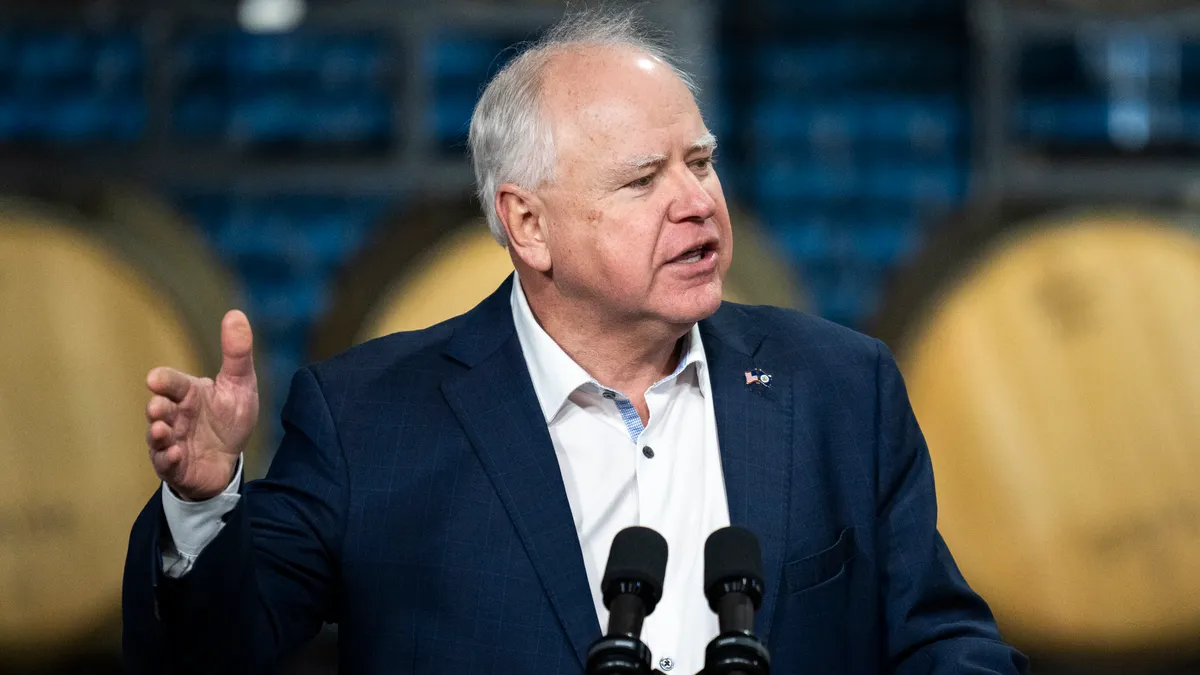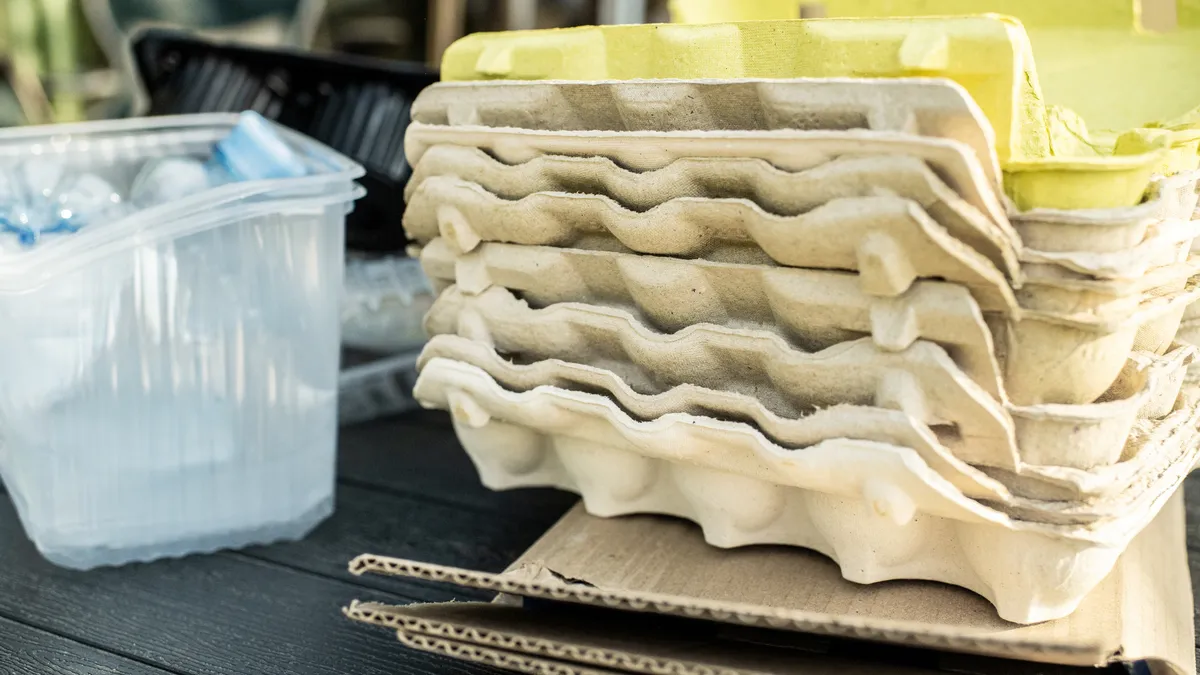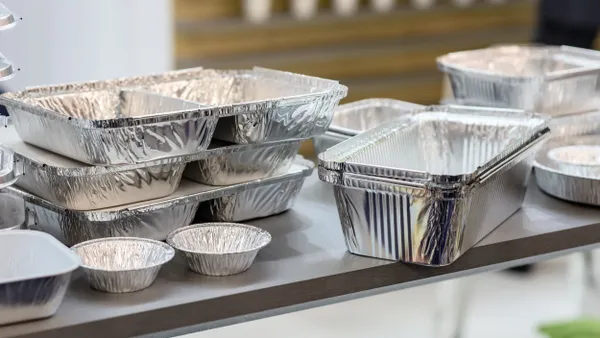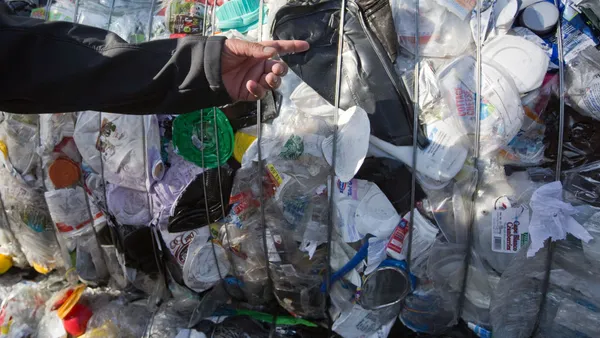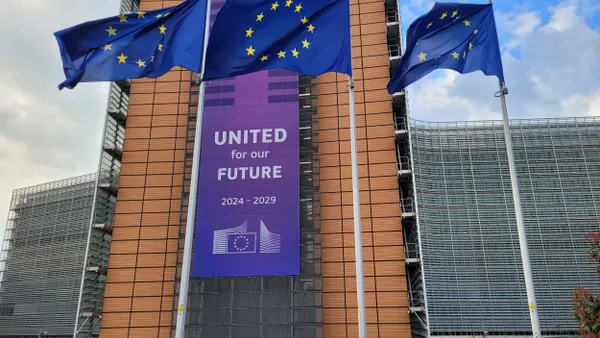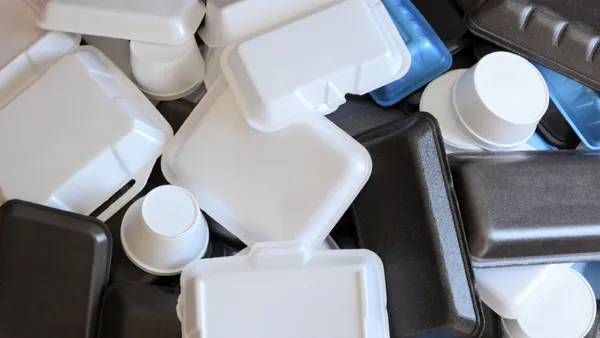Minnesota is the fifth state in the U.S. to approve a law establishing an extended producer responsibility program for packaging. Gov. Tim Walz signed a budget bill on Tuesday evening that included legislation known as the Packaging Waste and Cost Reduction Act.
Minnesota’s text defines producers as brands, packaging manufacturers or distributors, depending on the scenario. Exempted from this definition are mills that use any virgin wood fiber in its products or paper mills that make containerboard derived from 100% recycled content.
Unlike earlier drafts, the final text does not specify performance targets. A future needs assessment would inform any potential targets around recycling, composting, waste reduction, reuse and return rates, and postconsumer recycled content usage. Packaging for infant formula, medical equipment and other categories would be exempt from the program.
Minnesota’s decision comes as four other states are implementing their own packaging EPR laws. Oregon and California’s programs are set to begin July 1, 2025. Colorado’s implementation is set to start Jan. 1, 2026. In Maine, producer payments are slated to begin in 2026.
Notable supporters of Minnesota’s packaging EPR framework have included Ameripen, the Flexible Packaging Association and the Consumer Brands Association. Following the governor’s decision, groups including WWF and American Beverage also released supportive statements. Opponents included the American Forest & Paper Association.
Where else packaging EPR is still in play this year
New York
The Packaging Reduction and Recycling Infrastructure Act (S4246/ A5322)
- The bills call for companies with net income over $1 million who sell or distribute certain packaging to join in a single producer responsibility organization, known in the New York bill as a “packaging reduction and recycling organization.”
- The legislation also calls for creating a recycling advisory council and would require the PRO to provide the option to purchase recycled materials from processors. It also sets plastic reduction rates and postconsumer recycled content targets, as well as recyclability requirements for certain packaging that producers sell into the state.
- The bills are currently being considered in committees. The state’s legislative session ends June 6.
New Jersey
Packaging Product Stewardship Act (A2094/S208)
- The bill lays out performance goals for all single-use packaging to be made of at least 75% “post-consumer content” by 2027; all to be “readily recyclable or compostable” by 2030; and all single-use plastic packaging “to be reduced to the maximum extent practicable” or by at least 25% by 2030.
- The Senate Environment and Energy Committee included the bill in a hearing on May 13 and discussions are ongoing. The state’s current legislative session does not end until Jan. 13, 2026.
Massachusetts
Various EPR for packaging bills technically remain active in Massachusetts, but sources don’t currently anticipate notable movement before the state ends its current legislative session in July.
Upcoming needs assessment deadlines
Maryland and Illinois have not passed EPR for packaging laws, but each state is undergoing a needs assessment that could serve as a foundation for any future EPR law. Maryland’s assessment is expected by the end of the year, while Illinois could publish its assessment later in 2026.
New York recently published the first phase of its own voluntary needs assessment.
Editor’s note: This story has been updated to include reactions from additional organizations.




